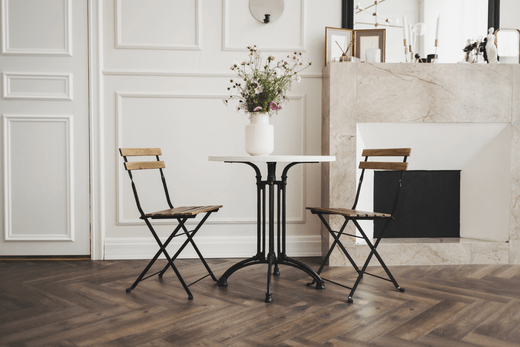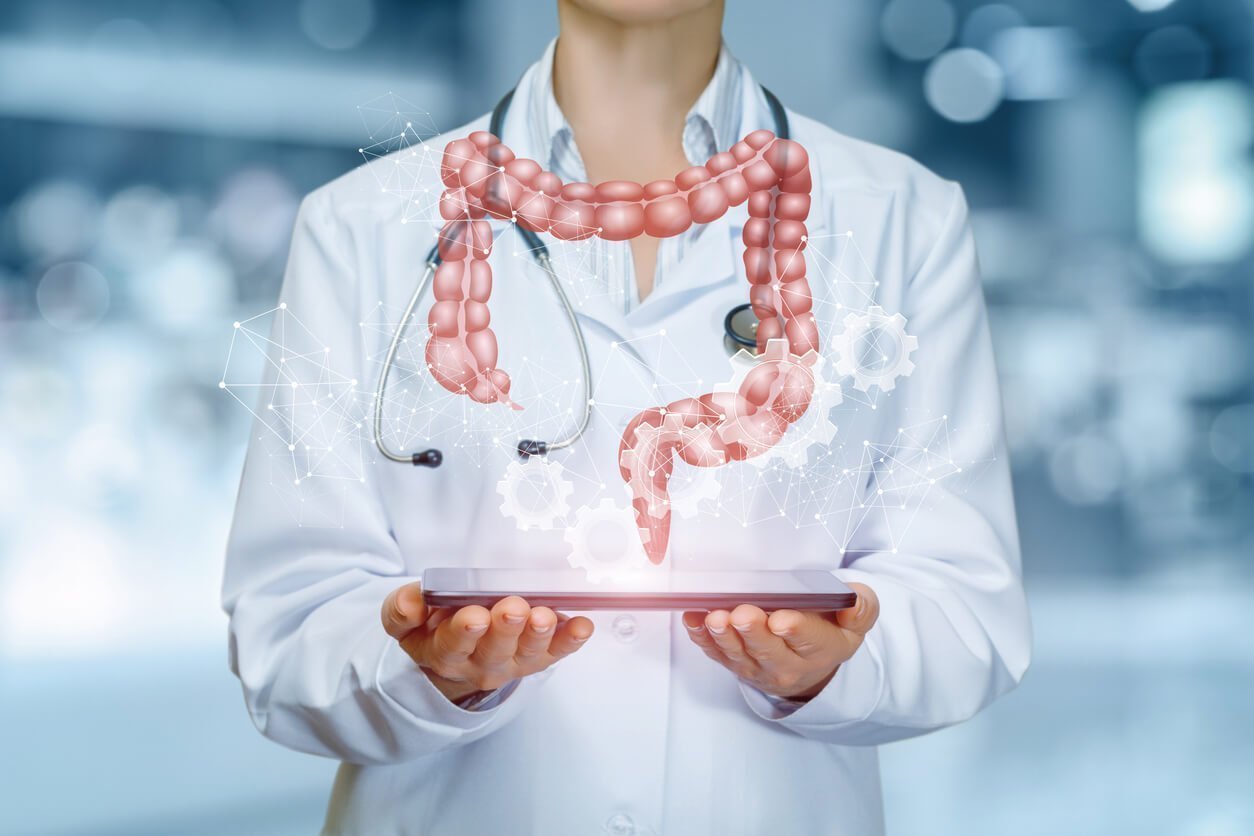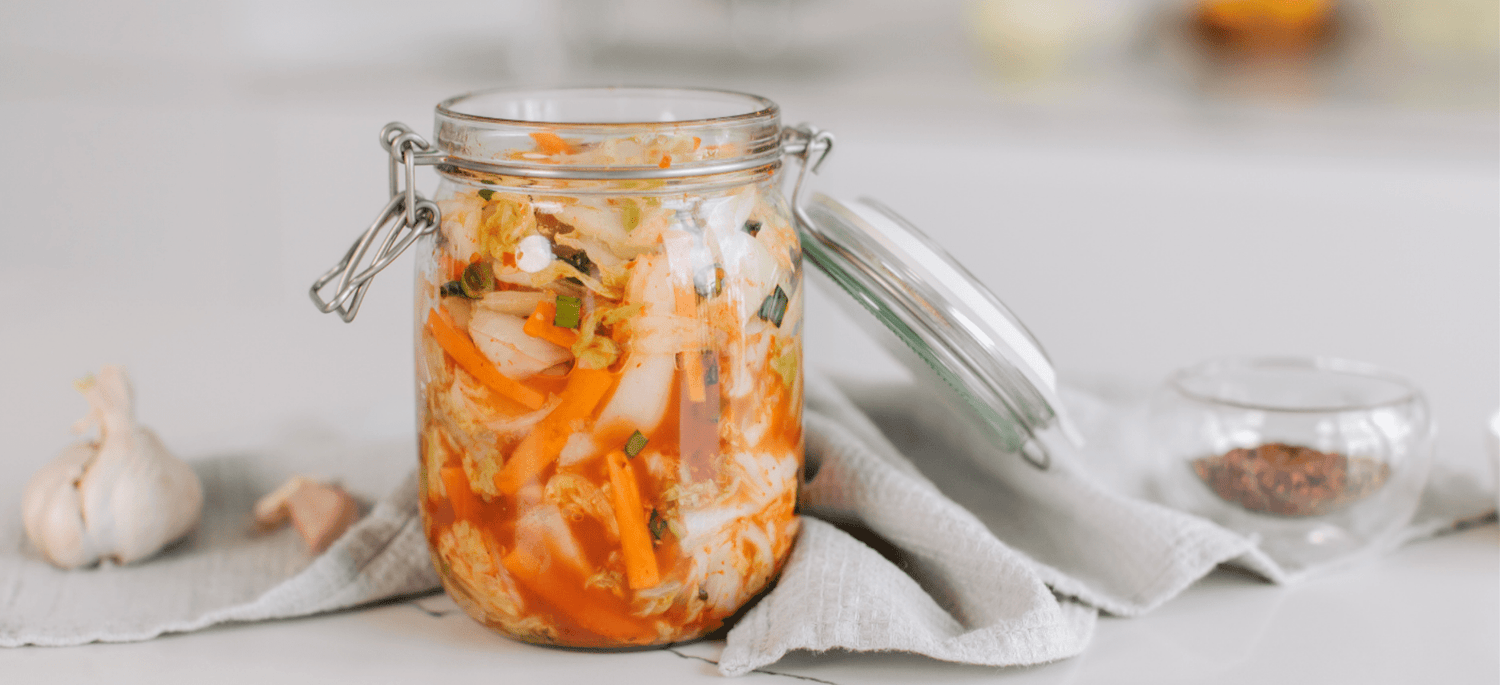Table of contents
- But how can we optimally support this crucial factor? Stuul and myBioma have very different approaches to this, but they complement each other perfectly.
- How does your stuul work compared to conventional plastic bowls?
- Can you tell me what importance the microbiome has for bowel movements? Are there perhaps already scientific studies on this?
- Could you tell us more about the health benefits of squatting naturally while defecating? How does your stool affect bowel movements?
- Could a faster transit time be achieved by using a toilet stool in the event of constipation, thus stimulating a beneficial change in the microbiome?
- What is the study situation regarding toilet stools?
We look forward to an exciting conversation in which both conversation partners approach a common goal from different directions: promoting our intestinal health for optimal well-being!
Daniel Kövary is the founder of the Munich “toilet stool start-up” stuul and Dr. med. univ. Nikolaus Gasche is the co-founder and managing director of the Vienna-based company myBioma, which is now better described as a grown-up, and is the leading provider of self-tests for the composition of the intestinal microbiome in German-speaking countries.
We all know that a healthy gut is crucial to our well-being.
But how can we optimally support this crucial factor? Stuul and myBioma have very different approaches to this, but they complement each other perfectly.
While one focuses on the correct posture when going to the toilet in order to optimize the excretion processes, the other offers the opportunity to research and specifically support the individual microbiome.
So which of you would like to start?
Daniel:
Thank you! I'll be happy to take this on. I also find the constellation very exciting. At stuul we see the intestine more as a tube that should be stretched as much as possible during bowel movements in order to make bowel movements easier, while at myBioma you are mainly concerned with the contents of this tube. A holistic view of the rectum.
But maybe first a quick word about me and my “big business” with toilet stools. I founded Stuul 4 years ago because my wife forbade me from putting a conventional toilet stool in our bathroom. She found this bland white plastic bowl simply too unaesthetic for our bathroom. Above all, she would have been embarrassed in front of our guests. When they saw the toilet stool, their heads would immediately go crazy and they would imagine in every detail what intimate diseases we would suffer from. At least that was their fear and so the toilet stool was banned from our bathroom on the first day.
But since I was still convinced of the health-promoting effects of the natural squatting position when defecating, I made it my mission to completely reinvent the toilet stool. Our stuul is the result of a very long and exciting development process.
And Nikolaus, how did you end up in the “intestinal business”?
Nikolaus:
Thank you very much, it's a pleasure to be here. The founding of myBioma together with my co-founder Barbara Sladek comes from a combination of my medical passion, her scientific expertise and our shared desire to improve people's intestinal health.
During my training and my work as a doctor, I have repeatedly noticed how crucial the microbiome is to our health. It is fascinating to realize that our gut is populated by trillions of bacteria that perform an impressive variety of functions. These microorganisms not only affect our digestion, but also our immune system, our mood, our energy metabolism and many other aspects of our health.
As I delved deeper into research into the microbiome, I realized that understanding and using this knowledge offers enormous potential for the prevention and treatment of a wide range of diseases. From gastrointestinal disorders to metabolic disorders and mental illnesses – the microbiome plays a crucial role.
And this is exactly where myBioma comes in. We offer advanced analysis methods to examine the individual microbiome and provide recommendations on how to optimize gut health.
How does your stuul work compared to conventional plastic bowls?
Daniel:
So from a purely health perspective, all toilet stools out there should have roughly the same benefit, but strictly speaking, a stack of books or an upside-down laundry basket also does the same. The purpose of a toilet stool is to assume a kind of squatting position when defecating. In this natural position, the rectum is stretched and the actual emptying of the intestines can take place faster and, above all, more completely. Without any straining or straining, which is partly responsible for many typical diseases of civilization such as hemorrhoids or constipation.
However, when it comes to sustainability and design, we stand out even more clearly from competing products. When it came to the design, it was important to us to interrupt the chains of associations described above, which my wife had feared the guests would have. We managed to do this by completely breaking up the shape of the stool by dividing the design into two parts. The guests now only see a kind of box in the host's bathroom and at most wonder what function this box has.

Founder of the Munich Toilet stool start-ups stuul Daniel Kövary.
But I didn't want to just release another piece of plastic into the world, so we focused on the topic of sustainability from the start when developing the product.
On the one hand, we didn't want to produce in faraway countries. For me, it is out of the question to build our business model on exploiting global social disparities and low environmental standards in other countries. That's why we decided on climate-neutral production in Germany.
On the other hand, the material we chose also has very good properties from an ecological point of view. It consists of over 90 percent air and this alone saves material. But it can also be 100 percent recycled. This is very rarely the case with plastics. So we can easily make a new one out of any returned stuul that can no longer be used.
But back to our common topic, the intestines:
Can you tell me what importance the microbiome has for bowel movements? Are there perhaps already scientific studies on this?
Nikolaus:
Your sustainable approach is very impressive! There is actually extensive scientific research into the microbiome and its importance for bowel movements.
An interesting study published in the journal 'Gut' (https://pubmed.ncbi.nlm.nih.gov/26069274) examined the connection between the gut microbiome and stool quality, as measured by the Bristol Stool Scale (BSS). The BSS reflects the water content and activity of the stool and serves as a measure of the intestinal colonic transit time.
This study examined 53 healthy women and found a strong correlation between stool composition and various microbiome indices. For example, more liquid stool texture was negatively associated with species richness and positively associated with the ratio of Bacteroidetes to Firmicutes. In addition, certain microorganisms such as Akkermansia and Methanobrevibacter were associated with firmer stool texture. The researchers suspected that the different stool textures could be related to individual transit times and that accelerated transit times would contribute to the differentiation of the colonic ecosystem.
Could you tell us more about the health benefits of squatting naturally while defecating? How does your stool affect bowel movements?
Daniel:
I am not a doctor myself and therefore not an expert. But of course, over the past few years, I have spoken to many proctologists about the benefits of using toilet stools for bowel movements. Most proctologists I've talked to recommend, among other things, that their patients use a toilet stool if they have problems with bowel movements.
The reason for this is the so-called puborectal muscle, which forms a kind of loop around the rectum and bends the rectum like a garden hose. For us, this is a very practical, passive safety mechanism that ensures that we do not inadvertently defecate or constantly tense the external sphincter when walking or standing.
"… . Only when squatting does the puborectal muscle relax and the rectum is stretched like a downpipe. …"
However, when sitting on the toilet normally, the puborectal muscle remains tense and makes emptying more difficult because the intestines are still slightly kinked. We have to push and squeeze to get the chair past this bend in this position. Constipations can become more severe, but diseases such as hemorrhoids can also be promoted by the high internal pressure on the intestinal mucosa. Only when squatting does the puborectal muscle relax and the rectum is stretched like a downpipe. In this position, the chair can be emptied faster, more easily and more completely.
I know from my own experience that there must be something to it. It's just much more comfortable to do your business while crouching. In any case, I no longer want to be without my toilet stool and am now taking it with me on vacation.
You say that the transit time of the stool is determined by the composition of the microbiome, but also conversely has an influence on the composition of the microbiome. Does this mean that, for example, if you have liquid stool according to the Bristol Stool Scale, you could take psyllium husk to solidify the stool and the resulting extended transit time could in turn lead to a positive change in the microbiome? Or, conversely:
Could a faster transit time be achieved by using a toilet stool in the event of constipation, thus stimulating a beneficial change in the microbiome?
Nikolaus:
Relaxation of the puborectal muscle undoubtedly plays an essential role in facilitating bowel movements based on established biomechanical principles.
Dr. med. univ. Nikolaus Gasche is the co-founder of myBioma.
Diet is central to controlling stool consistency and the health of the digestive system. In this context, fiber, such as that found in psyllium husks, is of particular interest. A notable aspect of psyllium husk is that it can be used for two opposing intestinal conditions: diarrhea and constipation. The respective dosage and type of application are crucial.
Furthermore, psyllium husks act as prebiotic food for the intestinal microbiota. The ingestion of psyllium husks leads to a selective stimulation of butyrate-producing bacteria. These microorganisms are responsible for the production of butyrate, a short-chain fatty acid that has anti-inflammatory properties and is instrumental in maintaining intestinal health. The targeted influence on the intestinal microbiota through the consumption of psyllium husk can therefore have a positive influence on the inflammatory regulation in the intestine and contribute to promoting overall well-being. A toilet stool could actually affect the transit time of intestinal contents because this squatting position relaxes the puborectal muscle, which can lead to smoother passage of stool. However, I'm sure you can say more on this topic.
What is the study situation regarding toilet stools?
Daniel:
In fact, there have been numerous studies* on posture and bowel movements, the vast majority of which have found a significant improvement in bowel movements by adopting a squatting position.
One study, however, sees a connection between sitting posture when defecating and the likelihood of developing colon cancer, while another cannot prove this connection in the case of constipation. I think the problem is that the number of participants in the studies was simply too small to provide reliable evidence, but that is often missing in medicine.
But that doesn't mean that we don't attach great importance to the scientific aspects. We are in regular contact with a number of very renowned proctologists who, as already mentioned, very often recommend the use of a toilet stool to their patients. One of them is Dr. med. Daniel Vipiteno. He is a surgeon, visceral surgeon and proctologist and works at the Proctological Center in Berlin. Mister. Dr. Sterzing, for example, advises everyone who has to strain when defecating or has the feeling that they are only incompletely defecating to use a toilet stool.
Science is, so to speak, the focus of you and your product. During your microbiome analysis, all bacteria in the stool are examined and your customers then receive a comprehensive report on the types and composition of the individual microbiome. I can imagine so many different user groups for whom such an analysis can be extremely valuable, from people with various intestinal diseases to people with obesity to people with mental disorders or brain disorders. Really fascinating!
Somehow I feel like this is just the beginning. The data protection-compliant research data obtained in this way about the population's microbiome could lead to real leaps in knowledge in the field, especially if the whole thing can perhaps be evaluated using artificial intelligence. But other services such as the provision of individually tailored stool samples for stool transplants at home are also quite conceivable.
Finally, can you perhaps tell us in which direction you are thinking and where myBioma's journey could go?
Nikolaus:
I believe that our journey leads to a very promising future of medical research. At myBioma, we are committed to being at the forefront of this exciting development. As an active participant in numerous studies, I am proud that we are already strongly committed today and would like to continue on this path in the future.
Our groundbreaking diagnostic tools, built on the microbiome, help deepen our understanding of disease and further advance individualized approaches to medical treatments. That's why we will continue to pursue this path.
An example of our diagnostic tools is BiomeOne. I am convinced that this innovative procedure can identify patients with tumor diseases who will respond positively to the latest immunotherapies (immune checkpoint blockade) more accurately than conventional laboratory tests.
And how it looks with you?
Daniel:
The topic of internationalization is on our agenda next year. Last year we concentrated fully on the German-speaking region and have now managed to build a certain brand awareness there and capture a significant market share. Our goal was to build real expertise in the marketing of toilet stools in our home market. The focus was always on the Amazon channel, our own web shop and collaboration with other online platforms as sales partners.
I think that we can now use this knowledge in other countries to open up these markets efficiently. In addition to neighboring European countries, the focus is primarily on the US market. Because toilet stools are very popular in the USA. The inventor of the Squatty Potty toilet stool managed to completely remove the taboo around the toilet stool and is now viewed by Americans as almost a national cultural asset. Your viral commercial certainly contributed to this, which everyone should watch on YouTube if they want to have a good laugh.
I would like to thank you very much for the very interesting exchange with you and wish you all the best and much success for your future plans. We should definitely talk again in a few years to see if and how the plans have come to fruition.
Nikolaus:
That sounds really exciting! I am sure you will achieve great things in this field.
Thank you very much for this, I really enjoyed talking to you. I also wish you much success and look forward to our further exchange.
References
- Studien zur den gesundheitlichen Vorteilen der Hockposition beim Stuhlgang u.a. durch die Verwendung von Toilettenhockern
- Sikirov, D. – Vergleich der Press-Belastung während der Defäkation in drei Positionen, „Comparison of Straining During Defecation in Three Positions. Results and Implications for Human Health“ Digestive Diseases and Sciences, Juli 2003, 48:7, Seiten 1201-1205
- (Vergleich der Press-Belastung während der Defäkation in drei Positionen. Ergebnisse und Implikationen für die menschliche Gesundheit)
- Sohrabi et al.: Squatting and risk of colorectal cancer:a case-control study (Middle East Journal of Digestive Diseases, 2012)
- Sakakibara, Ryuji et. al – Einfluss der Körperhaltung auf die Darmentleerung beim Menschen, „Influence of Body Position on Defecation in Humans“ LUTS 2010, 2:16-21
- Bhattacharya Sudip et al. – Gesundheitsförderung und Prävention von Darmerkrankungen durch das WC-Design: Ein Mythos oder Realität?, Health promotion and prevention of bowel disorders through toilet designs: A myth or reality?. Journal of Education and Health Promotion, Februar 2019, 8:40
- Trieu et al.: Using a footstool does not aid simulated defecation in undifferentiated constipation: A randomized trial (Gastroenterology, 2022)
- Dr. B.A. Sikirov – Ätiologie und Pathogenese der Divertikulitis coli: ein neuer Ansatz
- „Etiology and pathogenesis of diverticulosis coli: a new approach“, Medical Hypotheses, 26. Mai 1988;26(1):17-20.
- Bockus, H.L. – Gastroenterologie
- „Gastroenterology“, (Philadelphia: W.B. Saunders Co., 1944), Vol. 2, Seite 469
- Ghoshal UC et al. – Indischer Konsensus zur chronischen Verstopfung bei Erwachsenen
- „Indian consensus on chronic constipation in adults: A joint position statement of the Indian Motility and Functional Diseases Association and the Indian Society of Gastroenterology.“ Indian Journal of Gastroenterology: Official Journal of the Indian Society of Gastroenterology, 2018, 37(6):526-544
- (Indischer Konsensus zur chronischen Verstopfung bei Erwachsenen: Eine gemeinsame Stellungnahme der Indian Motility and Functional Diseases Association und der Indian Society of Gastroenterology.)
- Saeed Rad- Einfluss ethnischer Gewohnheiten auf defäkographische Messungen.
- „Impact of Ethnic Habits on Defecographic Measurements.“ Arch Iranian Med, 2002, 5(3):115-117
- Chuah KH, Mahadeva S. – Einfluss kulturelle Faktoren auf funktionelle gastrointestinale Störungen im Osten.
- „Cultural Factors Influencing Functional Gastrointestinal Disorders in the East.“ Journal of Neurogastroenterology and Motility, Oktober 2018, 24(4):536-543
- (Einfluss kultureller Faktoren auf funktionelle gastrointestinale Störungen im Osten.)
- Dimmer, Christine, Brian Martin et al. – Hocken zur Vorbeugung von Hämorrhoiden
- „Squatting for the Prevention of Hemorrhoids“ Department of Science and Technology Studies, University of Wollongong, NSW 2522, Australien, veröffentlicht im Townsend Letter for Doctors & Patients, Ausgabe Nr. 159, Oktober 1996, Seiten 66-70
- Dr. B.A. Sikirov – Behandlung von Hämorrhoiden: Eine neue Herangehensweise
- „Management of Hemorrhoids: A New Approach, Israel Journal of Medical Sciences“, 1987: 23, 284-286
- Sakakibara, Ryuji et. al – Einfluss der Körperhaltung auf die Darmentleerung beim Menschen
- „Influence of Body Position on Defecation in Humans“ LUTS 2010, 2:16-21
- Modi, Rohan M. et al. – Einsatz einer Vorrichtung zur Änderung der Stuhlganghaltung.
- „Implementation of a Defecation Posture Modification Device. Impact on Bowel Movement Patterns in Healthy Subjects.“ Journal of Clinical Gastroenterology, März 2019: 53(3), 216-219
- (Einsatz einer Vorrichtung zur Änderung der Stuhlganghaltung. Auswirkungen auf die Darmtätigkeit bei gesunden Probanden.)








